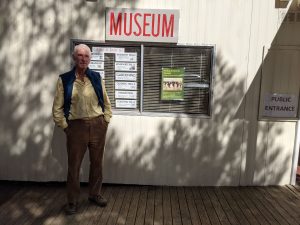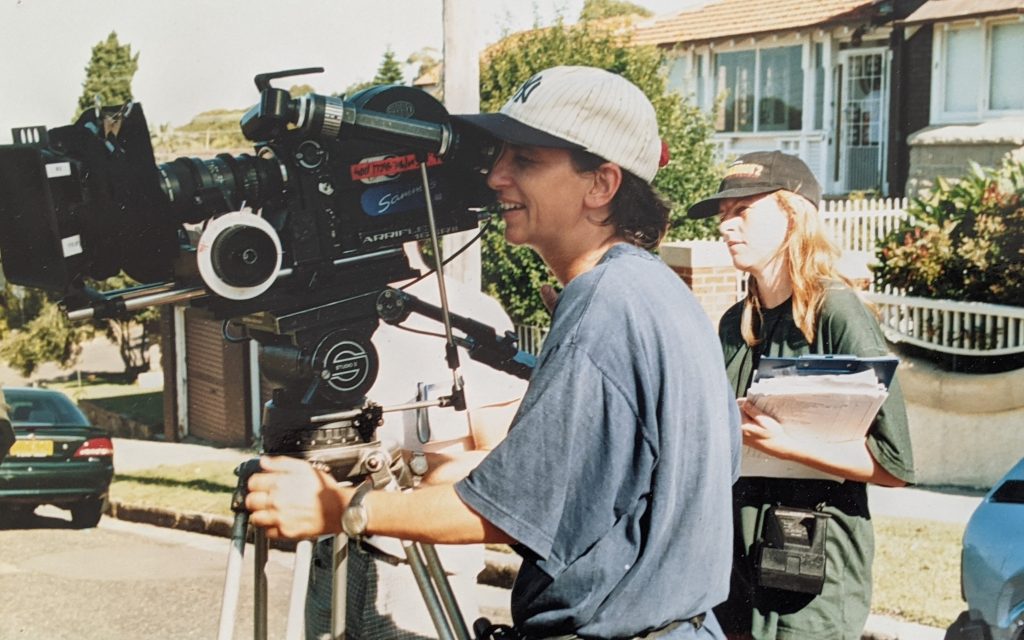Lights! Canberra! Action! Q&A
While there has recently been doom and gloom surrounding many local film festivals, Lights! Canberra! Action! seems to be moving from strength to strength as it enters its thirteenth year. With the festival receiving a record number of entrants in 2016 alongside a fantastic turnout despite threats of storms, NowUC talked with Festival Director, Marisa Martin, about the festival’s success, the reasons behind it and its place within the Canberra film community.
Q: With Lights! Canberra! Action! (LCA) wrapped up for another year, how do you feel like the festival went in 2016?
A: Really well, we had a huge increase in entries in terms of the number of people finishing, the number of people interested and the number of new entrants as well so I think it went really well in that regard. We were a bit worried about the weather but it held out for us and we had huge audience numbers as well so overall, we’re really pleased.
Q: The integration with the Enlighten festival is fairly new, only starting in 2012. How do you feel that’s affected the festival in terms of audience numbers and in other regards?
A: It’s really helped, being part of a much larger event means we get put into their marketing which helps us and the location is just so beautiful. With all the projections on the buildings and having our screen amongst it all is really great. It’s also allowed for a much better screening venue because we used to hold it in Garema Place before that which was not big enough to be honest. Before that was the National Museum which was OK but the audio echoed around their hall quite a bit so we’ve now got the venue right, as long as the weather holds of course. Overall though, the whole festival has a great vibe and I just feel like our festival fits in really well with their program.
Q: Despite the Enlighten partnership being fairly new, LCA has been associated with the ACT Government since the beginning. How did that partnership come about?
A: They were looking for an arts festival with both film as the base and with a focus on Canberra. I ran some local festivals at the time and we got together to talk about what we could do to make an exciting, intense festival. We’d been inspired by others like the 48 Hour Film Project and Shootout in Newcastle which is 24 hours so we thought we could do something to make the festival a little bit better by giving everyone a little more time, but not too much time. Otherwise, if there’s no impetus, no deadline, people get a bit slack and there’s opportunities for excuses. So this way, they’ve got a tight deadline, not too tight, but it is tight. So that’s kind of where it came from, they wanted an event and we worked together to create something special.
Q: Over the past few years, there have been a few film festivals, both short and feature length, that have been either struggled or disappeared altogether. Canberra International Film Festival (CIFF) downsized last year after losing $50,000 in 2014, CSIRO’s Scienma festival hasn’t come back since 2013, Tropfest has had some well publicized financial issues and didn’t make a Canberra appearance this year. What do you feel are some of the reasons behind these struggles?
A: It’s always funding. We have got a really strong stream of funding from the ACT Government. They love the event, they’ve made it an important event on their calendar with Enlighten so without them, it would’ve been a struggle. CIFF did not get additional funding one year and that’s why they really cut back their program and Tropfest has always gotten minimal government funding. For us though, because the screenings are free and entry fees are minimal, the income generation on these things is not high and it really does rely on sponsorships and the government and without their support, the event possibly would have disappeared as well.
Q: So do you feel like that partnership has put LCA in an unusual position as compared to other festivals?
A: Yeah, definitely. The different events I’ve run in the past have all run on models that are grant and sponsorship based, and writing those grant applications and getting those sponsors on board is so much work. This festival, in that regard, is so easy because the government says ‘yes, this is an event we’re supporting and we’re going to pay for it’. Without them, it would be a lot more work and for me, having run other festivals that were a lot more work for a lot less reward, I wouldn’t have been able to do this for thirteen years on those models.
Q: Along with that support, what do you feel like are some of the others reasons behind LCA’s success?
A: It’s fun! Having the tight but not too tight deadlines means even people with fulltime jobs have two weekends to make something and be a part of the festival and I think that’s really important. Even though there are all these rules, they do mean that you get to see Canberra on screen which is a big part of the festival and a big part of why the government supports it. The rules also push for Canberra stories to be told and they help funnel people’s creativity, which I think a lot of people need. There’s also cash prizes, something I was really adamant about. Filmmakers need cash and while the prizes aren’t a lot individually, most successful films win more than once and can end up with quite a bit.
Q: Well yeah, James Hunter [LCA Winner, 2016] ended up with a few thousand by the end of the night.
A: James is actually a really brilliant example. In our first or second year, he entered as a twelve-year-old and made the finalists list with his amazing little film. And while he didn’t win anything, we were so impressed that he had made the finalists that we gave him a ‘Highly Commended’ award. He’s entered a bunch of times since and while it’s taken him a while to finally win the whole thing, I still remember him starting out and for him to win with a really mature film I think is just awesome. To watch the careers of these filmmakers who keep coming back every year happen before my eyes is really great. There’s a forensics analyst who emailed me the other day who said while he’s not a filmmaker, for ten days a year he becomes one and he looks forward to it every year. It’s stuff like that which makes it really worthwhile.
Q: You can really build a relationship with the local film community, with that local feel being a big emphasis of the festival. Do you see that as a possible hindrance for LCA getting bigger, or are you looking to keep the festival at its current size?
A: I think it would have to change the way it was run if it were to get much bigger. People from outside of Canberra can enter but the city is a really important part. It’s about seeing Canberra on screen in other ways than a political report. There’s more here than that and there’s a big artistic scene here. The ten items are also a good way to do that as they show both the audience and filmmakers parts of Canberra that they haven’t seen or heard of before while also showing Canberra’s artistic, quirky side.
Q: So would you say LCA is looking to secure its space in the local film scene alongside other festivals as opposed to muscling out the competition?
A: Absolutely. While the films made in ten days are awesome, they’re a particular kind of film and they’re all based on a theme so if a filmmaker really had a particular vision that they wanted to get out, this is possibly not the right festival for them. Also, with the audience and exposure we have, we can be a good launchpad that’s good for up and coming filmmakers. More established filmmakers have other things that they can do and I’m glad that there’s other places for their more personal work or work that take longer than ten days.
Q: What do you personally feel is LCA’s role in the local film scene?
A: It’s like a party at the beginning of the year! It’s a good place for people to get their creative on while also having a big celebration of local art and artists. A lot of previous entrants also come along every year just to see what’s going on in the local scene before going to the afterparty and meeting everyone. And having a place for that networking is important, somewhere that everyone can get together and enjoy and appreciate ten days of spontaneous creativity.



Be the first to comment!